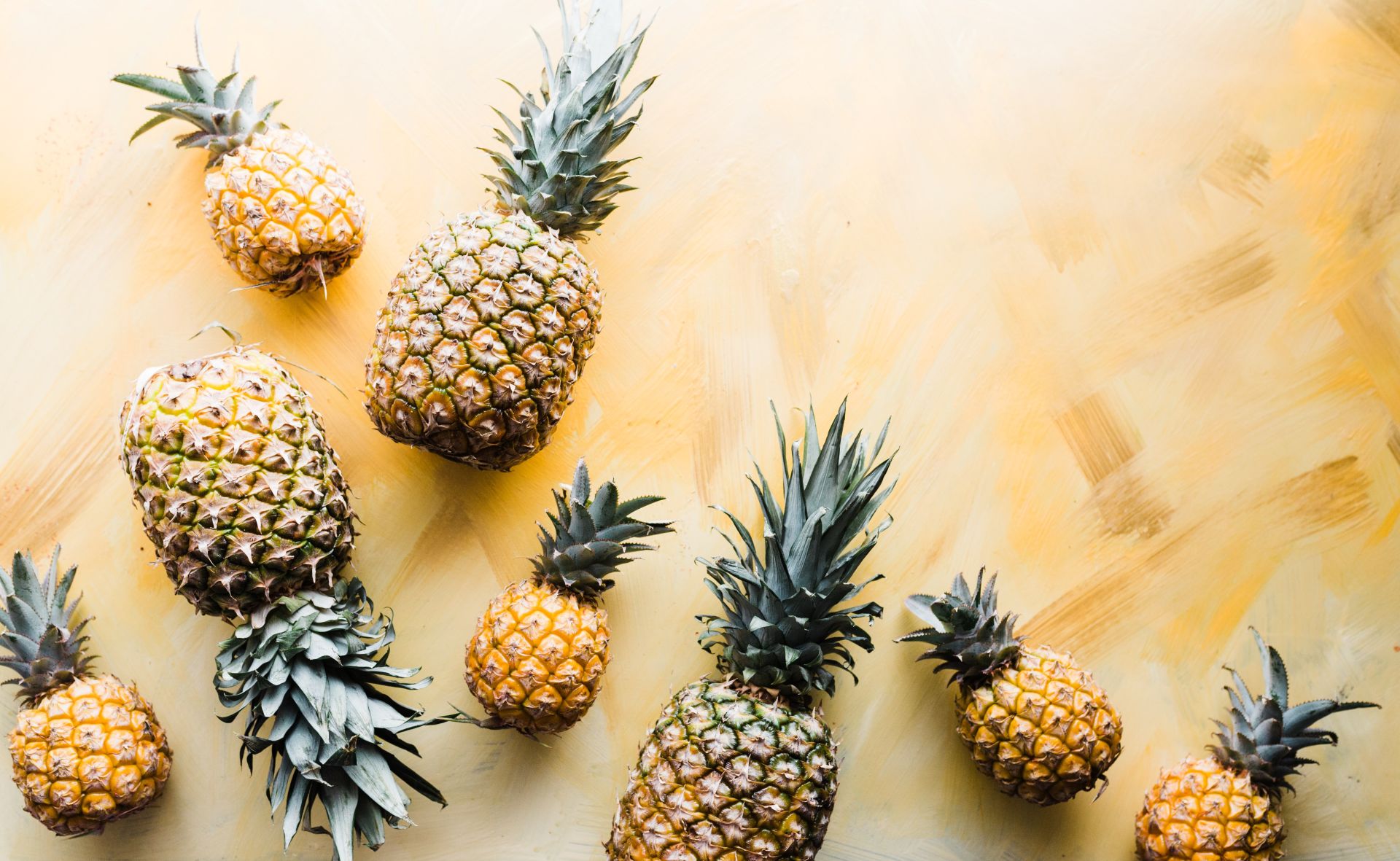
Here’s another not so fun fact: Carbs also cause abdominal bloating. So, if you're eating lots of French fries, pastas, or breads your body will retain water.
Everyday food items you wouldn’t expect can often cause issues too. Chewing gum or extremely fatty foods like fast food can both cause bloating. Gum puts air in your stomach giving it a false ‘full’ sensation, and fatty foods take much longer to digest than protein rich foods. Both can lead to pain and discomfort, as well as that rounded belly look.
Eating slowly and steadily will stop you from taking in too much air with your food, which sometimes makes bloating worse. You should also try to avoid sparkling water and sodas too. Anything with an excessive amount of air is not your stomach’s BFF.
But you’ll be pleased to know that the best fix for bloating is simple, natural and even tasty. Eating foods like pineapples, bananas, watermelon or yogurt after your dinner can all help to debloat you. These foods are digestion aids. They are rich in potassium, which is a mineral that helps reduce water retention.
Start incorporating these powerful foods into your day, if you haven't already.
Snacking on these foods will take the pressure off your stomach, so the muscles in your digestive track can stay strong, and continue to work hard doing what they do best - digesting your food.







